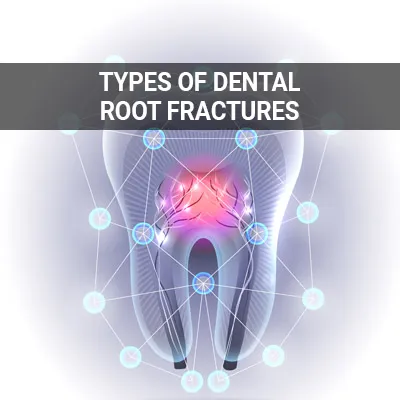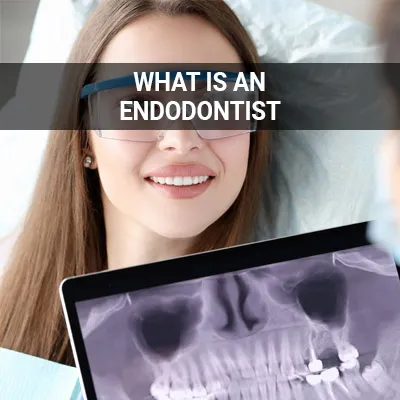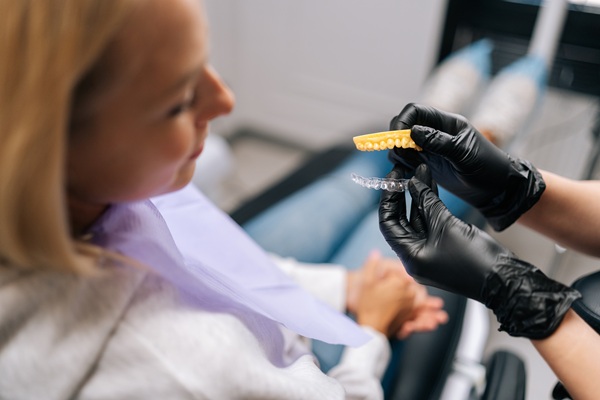7 Signs You Need Endodontic Surgery New York, NY
Endodontic surgery can give patients a second chance to save teeth that have been affected by infection or damage. There are various signs that people should be aware of, indicating the need for endodontic surgery. If you notice any of these signs, do not hesitate to schedule a dental examination to determine the extent of damage and cause of discomfort.
Endodontic surgery is available at Uptown Dental Group in New York and the surrounding area. Our team can help. Call us at (646) 666-0757 to learn more about our services or schedule an appointment.
Importance of Endodontic Surgery
Endodontic surgery can save a tooth in a variety of situations. It is often the last resort to save a tooth with problems associated with a root canal or when root canal therapy is not enough to save a tooth. Surgery prevents the need for tooth extraction, allowing patients to retain their natural smiles.
While many people experience fear at the thought of surgery, the notion that endodontic surgery is scary and painful is mistaken. Technological advancements and new techniques help patients remain safe and comfortable during their procedures. Many patients have endodontic surgery to remove discomfort as treatment clears any infection and repairs damage.
“Many patients have endodontic surgery to remove discomfort as treatment clears any infection and repairs damage.”
Pain and Sensitivity
Undergoing professional dental cleaning removes leftover food and debris from tight spaces of the mouth. While this debris can be uncomfortable, the discomfort should disappear following the professional cleaning. If pain persists after the procedure, it could be a sign of tooth infection or decay that may require endodontic surgery.
Although it is normal to experience some sensitivity when consuming hot or cold drinks or food, persistent pain can indicate a more significant problem. Pain that continues even after eating or drinking may be due to weak enamel or an infection inside the tooth. The latter problem may require endodontic surgery to repair the damage.
“Endodontic surgery may be necessary if root canal therapy fails to repair the tooth.”
Tenderness
Although many people experience some degree of tooth sensitivity, excessive oral tenderness when touching a tooth or chewing food is a symptom that may suggest the need for endodontic surgery. A tooth that sends sharp pain when chewing may be cracked or infected. If the damage is severe, endodontic surgery may be necessary to save the tooth.
When a tooth is painful to a slight touch, it is also a sign of a problem that may require endodontic surgery. Patients should not assume that this pain will disappear on its own. This pain will continue to persist and worsen until treatment can address the underlying endodontic problem.
“Although many people experience some degree of tooth sensitivity, excessive oral tenderness when touching a tooth or chewing food is a symptom that may suggest the need for endodontic surgery.”
Check out what others are saying about our dental services on Yelp: 7 Signs You Need Endodontic Surgery in New York, NY
Swelling or Drainage of Gums
Swollen gums are an obvious sign of infection and the need for endodontic treatment. The main cause of swelling is often plaque buildup, which in turn leads to infection. Gum drainage refers to draining the gums from an abscess or pus discharge. Drainage is typically the first step in endodontic surgery or root canal treatment. Following the surgery, the infection should be removed. The surgery will also reduce swelling and accumulation of pus and abscesses as the tooth is sealed off.
Abnormal Discoloration of a Tooth
Slight discoloration of the teeth is normal with age, depending on each individual's diet and hygiene habits. However, teeth that become a distinct yellow or brown color often exhibit an underlying problem. Endodontic surgery is recommended when tooth discoloration is coupled with other problematic symptoms such as infection, abscesses, tenderness, and swelling. In most cases, discoloration does not improve and cannot be reversed, but it can be stopped with treatment. Patients may choose to undergo whitening treatments after endodontic surgery to bring their natural color back.
“Gum drainage refers to draining the gums from an abscess or pus discharge.”
Questions Answered on This Page
Q. What is the importance of endodontic surgery?
Q. Is increased sensitivity to temperature a sign that endodontic surgery is necessary?
Q. Are swelling or drainage of gums a sign of a problem?
Q. What should I do about a dental abscess at the bottom of the tooth's root?
People Also Ask
Q. Do I need a tooth extraction?
Q. What is common misinformation about root canals?
Q. Are there any alternatives to root canals?
Q. What are the services offered endodontists vs. general dentist?
Dental Abscess at the Bottom of the Tooth’s Root
A dental abscess is an infection that contains pus and can often reside at the bottom of a tooth's root. Abscesses can be invisible when they are inside the tooth but are often detected when surgery is initiated. However, pain and tenderness in a tooth likely indicate the presence of an abscess. Treating the area through surgery removes the infection and the associated abscess.
Notice and Feel a Bump Near the Tooth
Aside from an abscess, other small bumps may form near the tooth somewhere on the gumline. Infection is often the primary cause of bumps on the gums. According to Healthline, these bumps can be a cyst, canker sore, fibroma, pyogenic granuloma, mandibular torus, or an oral cancer sore. Before undergoing endodontic surgery, we must first determine the type of bump or sore and its cause. In most cases, these bumps will dissipate with surgery. In more severe cases, as with oral cancer, the patient may need a different type of surgery.
“…bumps can be a cyst, canker sore, fibroma, pyogenic granuloma, mandibular torus, or an oral cancer sore.”
Frequently Asked Questions
Q. What are the types of endodontic surgeries?
A. Endodontic surgeries include apicoectomies, calcium deposit removals, and root canal treatments. An apicoectomy is a surgery to remove an infection in the root that results after root canal treatment. Calcium deposit removal involves cleaning and clearing the area from calcium accumulation to get the area ready for a root canal. Root canal treatments are the most common type of endodontic surgery to remove the infected pulp from the inner canal.
Q. Does endodontic surgery hurt?
A. Advancements in dental technology and improvements in anesthesia have allowed endodontic surgeries to be pain-free. Patients may experience slight discomfort and tenderness following the procedure, but that should dissipate within the first few days. We will also prescribe antibiotics and pain relief medication to reduce swelling, inflammation, and discomfort.
Q. Can I drive after the surgery?
A. This largely depends on the type of surgery the patient undergoes. In root canal treatments, patients can typically drive themselves home as we administer only a local anesthetic. For more severe conditions in which we use general anesthesia, the patient must arrange transportation the day of the procedure. The patient will be notified of this during the consultation appointment.
Q. How much does endodontic surgery cost?
A. The cost of surgery depends on the type of treatment and severity of the condition. We encourage patients to speak with their insurance provider prior to receiving treatment to better understand what their plan entails and what their co-pays may be.
Q. How long will it take to resume normal activities after surgery?
A. Patients should be able to resume normal activities the following day. However, if they feel pain, dizziness, or fatigue, rest is highly recommended. In cases of worsening symptoms, we encourage patients to contact us as soon as possible to schedule a follow-up.
Endodontic Terminology
Helpful Related Links
- American Dental Association (ADA). Glossary of Dental Clinical Terms. 2025
- American Academy of Cosmetic Dentistry® (AACD). Home Page. 2025
- WebMD. WebMD’s Oral Care Guide. 2025
About our business, and website security
- Uptown Dental Group was established in 2014.
- We accept the following payment methods: American Express, Cash, Check, Discover, MasterCard, and Visa
- We serve patients from the following counties: New York County, Kings County, Westchester County, Bronx County, Richmond County, Queens County, Suffolk County, and Nassau County
- We serve patients from the following cities: New York, Manhattan, Jersey City, Brooklyn, Bronx, Queens, Staten Island, Long Island, West New York, and Westchester
- Norton Safe Web. View Details
- Trend Micro Site Safety Center. View Details
Back to top of 7 Signs You Need Endodontic Surgery











